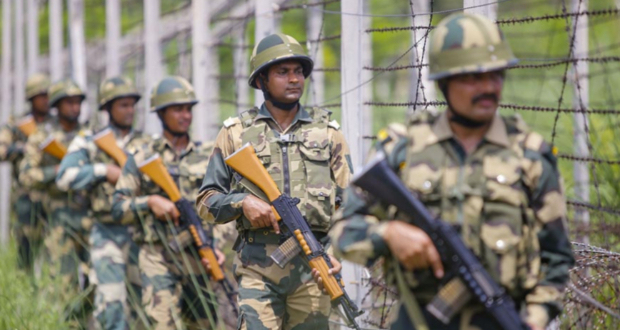The third anniversary of the ceasefire understanding between India and Pakistan was marked on 25 February. The ceasefire stands intact amidst immensely fraught ties between the two countries following the Pulwama terror attack in February 2019 and the abrogation of Jammu and Kashmir’s ‘special status’ on 5 August 2019. Despite Pakistan’s reluctance to accept the constitutional changes in J&K and no thaw in relations, there has been considerable peace on the border after the Director Generals of Military Operations (DGsMO) understanding on a ceasefire in February 2021.
The ongoing status quo has benefited both India and Pakistan, particularly the border population along the International Border (IB) and Line of Control (LoC). With almost non-existent diplomatic engagement between India and Pakistan, any semblance of peace on the border should be welcomed. Nonetheless, the silence on the border does not imply that Pakistan has stopped cross-border terror activities against India or that there is no risk of escalation between the two militaries in the future. The ceasefire has helped manage the India-Pakistan conflict, but it has not altered the dynamics of the overall peace process, or the lack thereof, in the last three years.
With a new coalition government in Islamabad and Pakistan Army Chief General Syed Asim Munir’s persistently hawkish views on India, bilateral ties may not see any forward movement. However, both countries may continue to keep the ceasefire intact to focus on other urgent issues.
Concerns in India
Agreeing to a ceasefire after years of violence on the border was a significant achievement for both India and Pakistan. It saved the lives of many civilians and security personnel on both sides. Furthermore, with peace on the western front, New Delhi could focus more on the Line of Actual Control (LAC) standoff with China. For Islamabad, the ceasefire brought relief to its dwindling economy and allowed Pakistan’s military establishment to address political and security crises within the country. A year prior to the ceasefire, there were close to 5,133 incidents of Ceasefire Violations (CFVs) in 2020, the highest since 2003. However, the numbers declined to roughly 670 in 2021, most occurring before the two DGsMO discussions in February.
Furthermore, there has been a noticeable improvement in the overall security situation in J&K since August 2019 and the border ceasefire in 2021. The current government has implemented a ‘zero-tolerance policy’ against terrorism in the region. This policy involves both central and local security agencies working in tandem to target not only terrorists but also their financial and overground networks in J&K. Consequently, schools, colleges, and local businesses in the Kashmir Valley are now functioning more normally than they were a few years ago.




